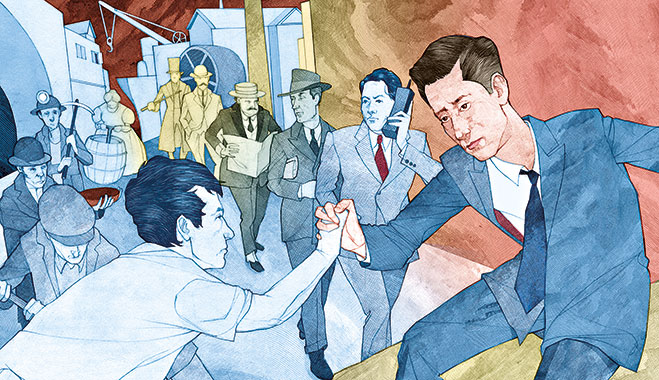It was put to me recently during a lecture, after posing a question in which I used the word ‘Neoliberalism,’ that the term “is problematic because it is nothing more than a synonym for Capitalism and therefore only confuses the issue.” It goes without saying that I didn’t agree. Capitalism and Neoliberalism are in many respects similar economic ideologies, but as socio-political realities they are very different beasts. Even the way in which we speak of them indicates that there is something of a difference between the two. Over the past couple of weeks I have been attempting to pin down exactly what this difference is.
Capitalism, from its earliest expressions, has been a social and economic mode of living; born from the ideas of personal responsibility and the Protestant work ethic. While I do not consider myself to be either a Capitalist or a Neoliberalist, it is worth noting that in and of itself Capitalism is not necessarily a bad thing. To some degree people should be socially and economically free to pursue their own interests, even their commercial and financial interests. Essentially this is what Capitalism is all about, affording people the freedom to trade and accumulate wealth within the wider restrictions of a state wherein regulations limit the damage that can be done by Capitalistic ambition and greed.
Neoliberalism, on the other hand, as a political development of Capitalism, is a political and economic ideology that seeks to maximise the freedom of the market by removing all barriers to the private accumulation of wealth. In so doing it becomes a power over and above the state directed to the ends of profit without government interference. It is not so much the case that Neoliberalism is against regulation as it is against regulation over which it has no control. The ruling ethic of Capitalism is prudence which leads to wealth, whereas the ethic of Neoliberalism is the accumulation of wealth for its own sake which leads to political power.
The success of this latter economic doxa in recent decades has resulted in the near universality of the hybrid neoliberal state; the evolution of statist thinking where the arrogation of power and the accumulation of wealth have become synonymous with good government. Neoliberalism, as the de facto only available political and economic option has had catastrophic effects on society and the environment. When only that which produces more wealth and power is sought working people and the environment end up becoming mere resources and sources of wealth and are mercilessly plundered accordingly. Left unchecked, the further expansion of Neoliberalism can only result in the creation of a world not in the least worth living in.

 RSS Feed
RSS Feed
